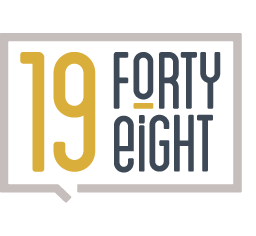We’ve all been there. Sitting in a training room, wishing we were somewhere else, half-listening while someone clicks through a deck of slides about ‘effective communication’ or ‘leadership presence’. The content might be decent, but the message just doesn’t land.
Now imagine something different.
You’re watching a familiar scene play out between two colleagues. One is clearly frustrated, the other defensive. You can feel the discomfort in the room. And then someone turns to you and says:
“What would you do next?”
That’s the power of forum theatre — an interactive, actor-led approach to learning that invites participants to step into the moment, rather than just talk about it.
What is Forum Theatre?
Originally a political tool for social change, forum theatre has evolved into a powerful method for education, training and organisational development.
In the workplace, it sees professional actors perform real-life scenarios — often tricky conversations or recurring miscommunications. The audience observes, reflects and then reshapes the action into something more constructive. They can pause the scene, question the characters, suggest new approaches — even step into the action themselves.
It’s immersive and it’s energising, because participants are actively challenging behaviours and testing new approaches in real time.
Why Immersive Learning Sticks
Traditional training methods often fall short for one simple reason: they rely too heavily on theory, and not enough on felt experience. You can talk all day about how to give feedback or de-escalate tension, but it’s not until you feel the impact of your words — or witness a conversation going off the rails — that the learning clicks.
Here’s why forum theatre is so effective:
- It’s safe, but real
Participants get to explore difficult situations without real-life consequences. They can test out language tone, and approaches they wouldn’t normally try. And if it doesn’t land well? No problem — rewind and try again.
- It activates empathy
Watching a scene unfold helps people see the emotional layers at play. You’re not just hearing about poor communication, you’re seeing and feeling it. It becomes far easier to understand where someone’s coming from, and how your own approach might affect them.
- It engages everyone
Forum theatre isn’t about passive watching. It invites people to speak up, share ideas, and step into the action. That level of participation means the learning goes deeper and lasts longer.
- It’s memorable
We remember stories. We remember moments that made us feel something. Forum theatre creates those moments. It sparks reflection, challenge, humour, discomfort — all the things that make learning human.
But Does It Work?
Forum theatre isn’t about putting on a show. It’s about using performance as a tool for change. When done well, this approach to immersive learning bridges the gap between knowing better and doing better.
We’ve seen teams transformed after a single session. One leader told us they finally understood why their feedback was falling flat. Another said it gave them the courage to have a conversation they’d been avoiding for months.
That’s the magic. Forum theatre doesn’t lecture you on the right way to communicate. It invites you to find your way, and shows you the ripple effect of every word and every reaction.
And the best part? It’s actually fun. It’s not one of those cringey, embarrassing training sessions. It’s bold, it’s dynamic, and it treats people like grown-ups with real challenges and complex emotions.
So next time your team needs to improve how they communicate, collaborate or navigate tough conversations, skip the slides.
Bring in the actors. Step into the scene. And rehearse the change you want to see.
By Simon Coleman, actor and founder of 1948
To find out more about forum theatre and how it can help your business, get in contact here.


